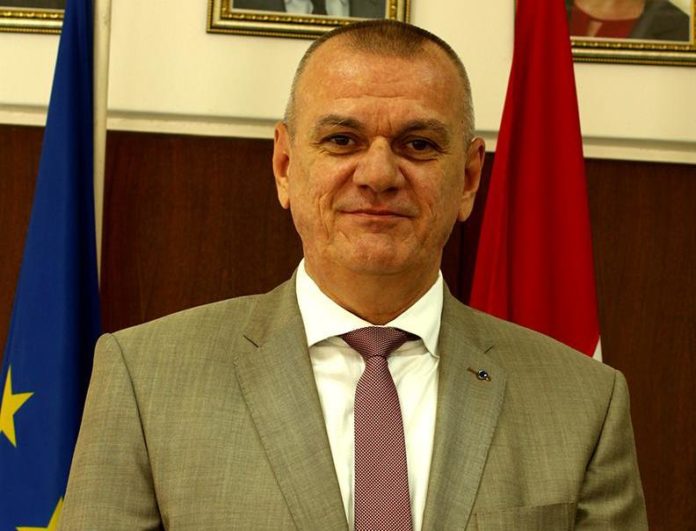By Ndey Sowe
Attila Lajos, the European Union (EU) Ambassador to the Gambia has urged Government to be proactively engaged in drafting of the National Security Policy (NSP) for its successful outcome.
“Without strong political engagement from key decision makers, Security Sector Reform (SSR) will fail, regardless of the resources and technical expertise invested in it,’’ he said.
Ambassador Lajos made these remarks during the forum for dialogue to direct SSR in the Gambia on Tuesday August 27th 2019, at a local hotel in Kololi.
The forum is funded by the EU and implemented by the Geneva Centre for Security Sector Governance (DCAF). The forum aims to respond to and enhance understanding of some of the main challenges within the Gambia’s SSR process notably questions pertaining to rightsizing, executive level decision making and resources management.
“Directing Security Sector Reform in the Gambia will be the first in a sequence of activities intended to bring the political level more into the SSR process,’’ he said.
Ambassador Lajos said the SSR is not just words; that the agenda has significant implications on how a state manages its forces and within what mandate and from which resources each security institution operates and how oversight is performed. He noted that Gambians are hungry for change and are ready to believe again. “What I see now is no visible reform in the last three years, within the security sector,” What I see now is increasing public and institutional frustration with the perceived lack of progress and leadership among other things,” he confessed. Governments that respect the will of their own people are more prosperous, stable, and more successful than Governments that do not. He called on leaders to provide direction on such issues:
- The SSR process has reached a point where executive direction is necessary for the process to survive. The office of National Security and (particularly the drafting teams), need direction on what the vision is and what the next steps of the process should be;
- Clarity on the appropriate size of each institution to fulfill their mandate and the resources the government of the Gambia is willing to allocate to adapting security institutions;
- The executive must commit to a time-bounded framework to deliver reform which can mitigate the challenges and obstacles that will inevitably arise; this must include a clear indication, based on available financial and institutional data as to how Government will rationalize the sector over the years to come;
The SSR process in the Gambia
At its inception, the transitional government in the Gambia articulated strong commitment to the reform of the security sector. At the strategic level, efforts to date have centered around the development of a National Security Policy (NSP) launched in June 2019. In May 2019, two drafting teams were commissioned to draft the National Security and Security Sector Reform Strategy respectively. These strategies are intended to provide detailed guidance to security Sector Institutions (SSIs) for short and long term SSR. For the Gambia, this will be a highly delicate matter covering issues such as recruitment, retirement, vetting, training, career development and promotions, that only clear political direction, founded on the principles of good governance and accountability, can address.
With support from the EU, World Bank and invited experts and other stakeholders, the forum for dialogue aims to respond to and enhance understanding of some of the main challenges within the Gambia’s SSR process.





















